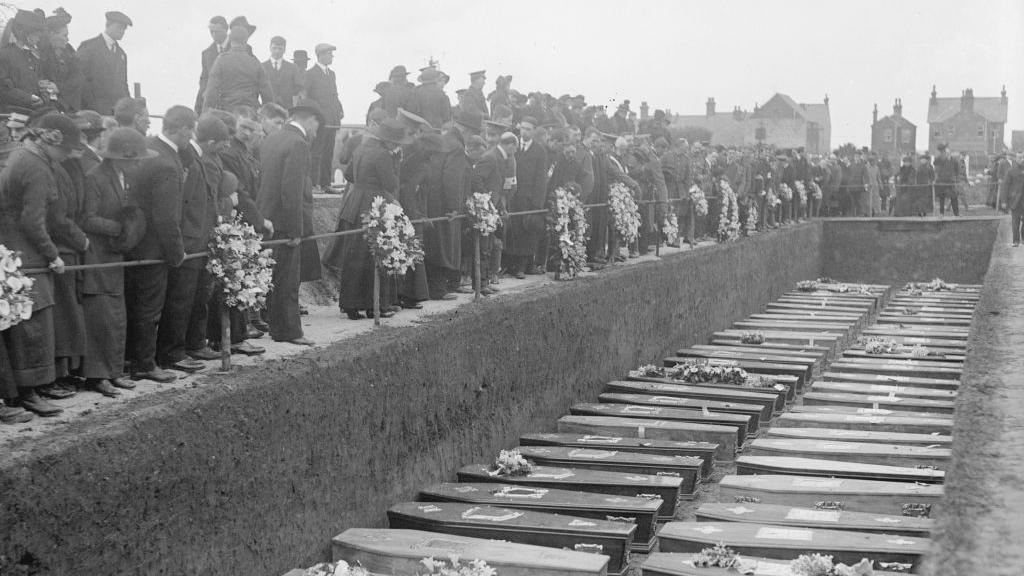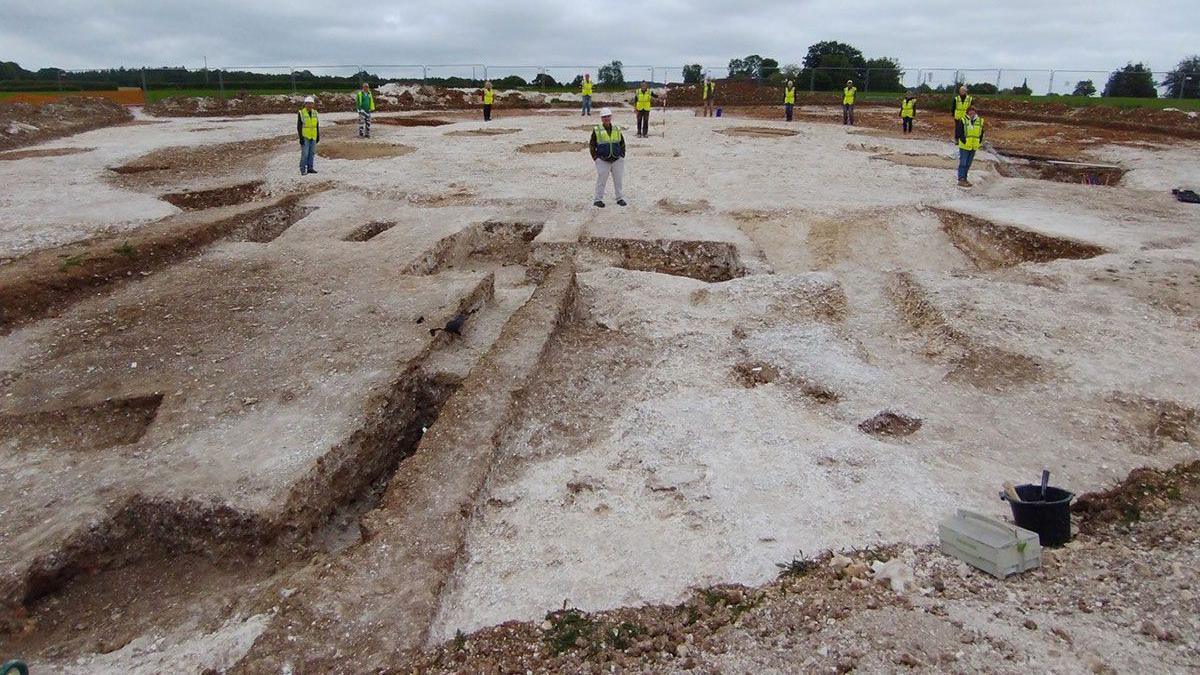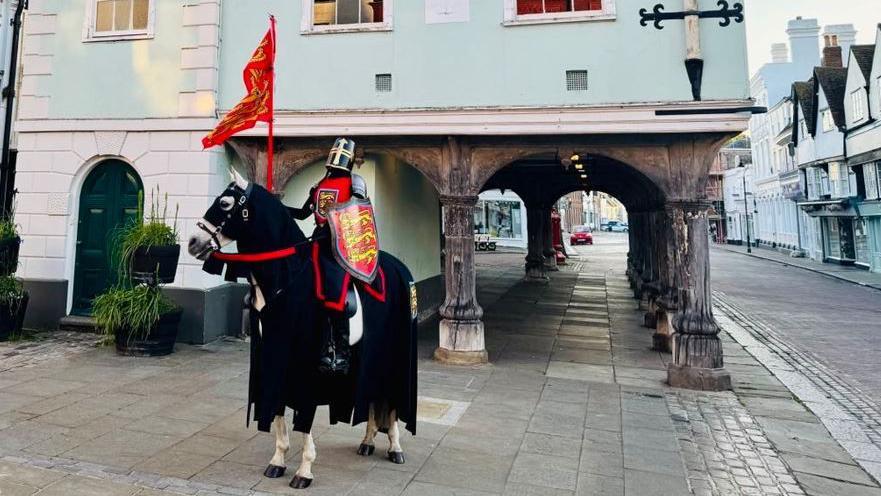The explosion that killed 108 and rocked Faversham

Many of those who died were buried at Love Lane Cemetery
- Published
During World War One, Faversham in Kent was rocked by an enormous explosion which killed at least 108 men and boys and left a permanent mark on the town.
On Sunday 2 April, workers at a gunpowder site were loading shells when the explosion happened.
Although the cause of the explosion was never discovered, there were theories of a dropped cigarette, sparks from the boiler house hitting TNT sacks, and the sacks naturally combusting in the sun.
Neil Tonge, one of the authors of Terrible Tudors in the Horrible Histories series, said: "The gunpowder still haunts Faversham, so it still lives in the history of the town."
A tale of tragedy in Faversham
The site caught fire and there was an enormous explosion which was followed by other detonations as the flames reached other buildings.
The explosion was ruled to be accidental following an investigation.
But a worker later gave a testimony and said staff had become careless and stacked sacks of TNT outside without any consideration of what could happen to them.
Mr Tonge said: "That was the principle problem, is that they had to produce as much as possible for the Western Front to obviate this terrible scandal that was erupting about the shell shortage."
Many of those who died were buried at Love Lane Cemetery in the town, and a memorial grave was placed there.
Mr Tonge added: "The problem was when they tried to recover bodies, they were recovering parts of bodies, so some were never identified."
Some boys as young as 12 were thought to have been working at the site.
"There are some really very poignant photographs of the parade [and] the funeral cortege through the town and it's attended by inevitably hundreds of people," Mr Tonge said.
After the war ended it was decided that the gunpowder business was vulnerable to attacks from Europe, so it was moved to Ayrshire in Scotland.
Follow BBC Kent on Facebook, external, on X, external, and on Instagram, external. Send your story ideas to southeasttoday@bbc.co.uk, external or WhatsApp us on 08081 002250.
Related topics
- Published15 July 2024

- Published26 May 2024

Related internet links
- Attribution